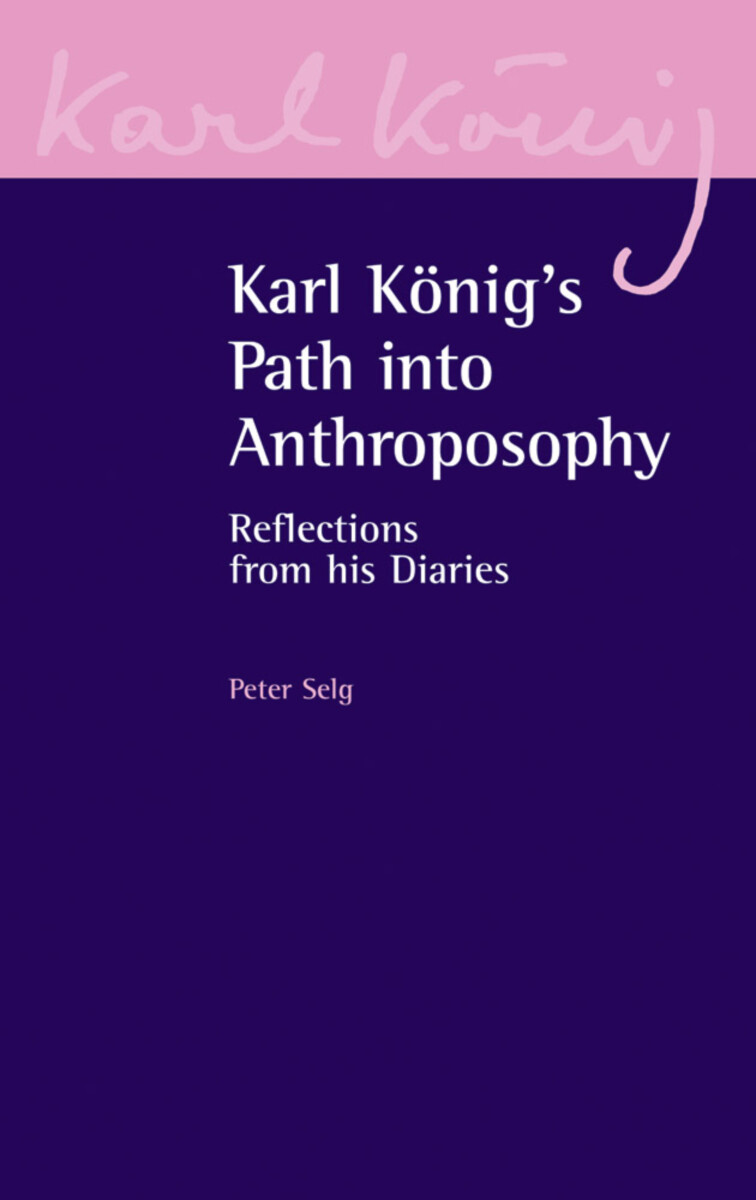- Publisher
Floris Books - Published
21st August 2008 - ISBN 9780863156298
- Language English
- Pages 112 pp.
“I told him about my affinity for people with special needs and my question as to whether working with them could be my vocation. He invited me to work in the Camphill movement and recommended that I study Kaspar Hauser’s life and Rudolf Steiner’s writings about the Fifth Gospel.” —Erhard Fucke
This book follows Karl König's spiritual journey from his early years to the end of his life. Through the words of his diaries, in which his battles with health and his impatient temperament are recorded with merciless honesty, we can follow his inner path that led to profound insights into the nature of children with special needs. His personal struggles and innate spirituality laid the foundation for his work in the Camphill Schools and Villages.
Includes facsimile reproductions of some of König's original diary pages.
About the Karl König Archive: Karl König, the founder of Camphill, was a prolific lecturer and writer on a wide range of subjects from anthroposophy and Christology through social questions and curative education to science and history.
The Karl König Archive are working on a program of publishing these works over the coming years.
“The book is a little gem, of potential interest to anyone with an anthroposophical background but especially to those working within a Camphill setting...there are so many quotable entries that it is hard to decide which to bring forward for illustration...This little volume is rich in substance and will give readers lasting nourishment. It will also leave them eagerly looking forward to the further publications from Konig's diaries and papers which are currently being prepared.”
—Crispian Villeneuve, Camphill Correspondence
C O N T E N T S:
Introduction by Peter Selg
1. The Struggle for Existence
2. The Inner Path
3. Spiritual Work
4. The Spirituality of Camphill
5. Knowing and Supporting the Children
Translation of Diary Facsimiles
Notes
Bibliography
Index
Karl König
Dr. Karl König (1902–1966) born on September 25th 1902 in Vienna, Austria, the only son of a Jewish family who owned a shoe shop. He studied zoology, biology, and medicine at the University of Vienna, graduating in 1927. During his studies on embryology, König encountered the works of Rudolf Steiner through Goethe's scientific writings. He immediately identified with Steiner and was soon acquainted with a number of his followers, including Ita Wegman.
Upon graduation, König was offered several high-profile positions in Vienna, but instead accepted an invitation from Ita Wegman to join her clinic in Arlesheim, Switzerland.
König's time at the Clinic would shape the Camphill movement. It was here that he met his wife and co-founder, Tilla Maasberg, and it was here that he first witnessed the Advent Garden. During this festival, during which children with learning disabilities circle a spiral of moss, lighting a candle from a large central beacon, he promised to dedicate his life “to the care and education of these children.”
Following his time at Arlesheim, König moved to Germany and was involved in founding the Pilgramshain Institute—one of the early curative educational (therapeutic) centers based on anthroposophy. However, due to the political pressure of the Nazi regime, König was forced to leave Germany in 1936. He returned to Vienna, where he operated a successful medical practice and led anthroposophic study groups until 1938.
Fleeing Austria after Nazi annexation in 1938, König became part of a small group of doctors, teachers, and artists to be granted political asylum in the United Kingdom in 1939. König moved to Aberdeenshire, Scotland, where this group founded a home for children with learning disabilities, which became the beginning of the Camphill movement. After World War II, more schools were established, as well as curative education villages for adults with disabilities, based on the ideal of working together as a community.
In the following decades, König's Aberdeenshire community grew and expanded into Britain, Europe, and North America, becoming the Camphill movement we know today. During this period, König worked tirelessly to help children and adults with special needs through publications, talks, and seminars—as well as by establishing communities around the world.
Karl König returned to Germany in 1964 and began yet another community, this one near Überlingen, on Lake Constance (Bodensee), where he died in 1966.


